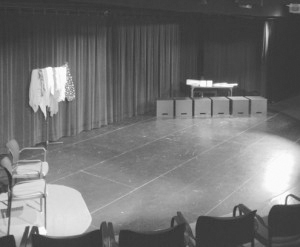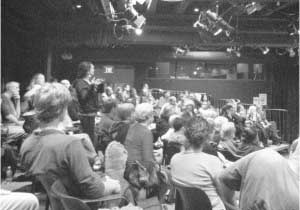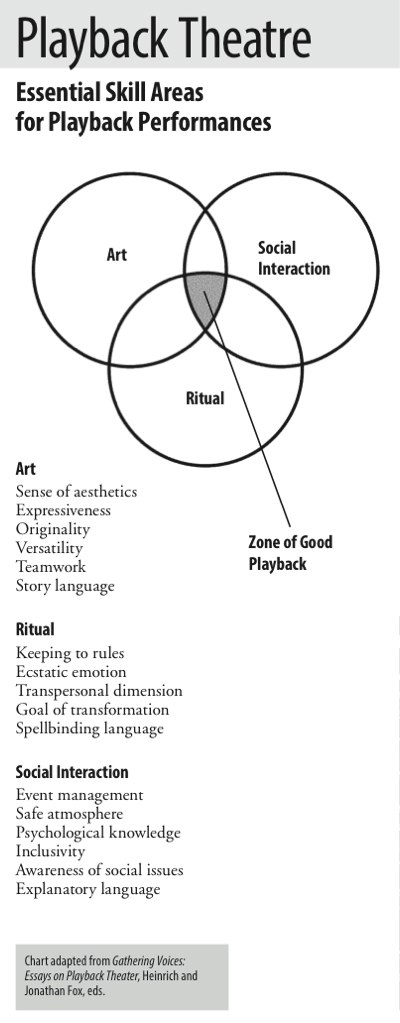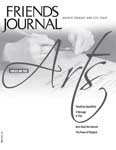
When a message rises in me, it begins in the stillness of my stomach, slowly stirring and raising my heart rate, pounding in my ears. It reaches out and plants itself in my heart between beats, between breaths. Out of stillness comes an insistent image, a thought, language, song, or phrase; a story to be shared. Taking form in me, it’s lent a voice that speaks from another, larger place. It takes reflection and discipline to listen deeply to what is being revealed and to overcome doubts, cynicism, and bias. It takes a certain measure of ritual. By ritual, I mean encouragement of the rising message: an awareness of breath, an aligning of the spine, a sensitivity for all five senses. I ground myself, and open to the insistent image, the message, that is forming. If I must, with sweaty palms I stand and share, sometimes finding a tangent to follow, or simply reveal a memory that moved me. After, when I sit, I am filled with calm and peace, happy to have Friends and neighbors with me in witness.
Quakers call this sharing many things: messages from God, the inner Light, Jesus. I have yet to place a name to their source in me, but I am certain that messages are unlike any other kind of speaking. For me they are not a side to defend or debate, they are not a statement or a plea; for me messages are in a category akin to performance. They require a special set of circumstances to emerge. Just as a play needs performers, audience, director, props, and setting, messages also require a combination of circumstances. Messages require a safe place, a gathering, stillness, oneness, and witness.
I recently met a group of artisans, who make it their practice to solicit messages and stories from individuals in community settings worldwide, and then play back those messages and stories theatrically using actors, musicians, and ritual as a means of inciting dialogue and fellowship within those communities. The theatrical form is called Playback Theatre, with members called “Playbackers” and the form the “Theatre of Neighbors.”
Today, Playback thrives in 60 countries as community organized and sponsored performances. While there are over 400 companies worldwide, very few are considered professional. Performances are not West End or Broadway bound, although you can find the Centre for Playback Theatre, a training institute, in New York City. Instead, Playback Theatre is a grassroots campaign, a performance platform for personal stories and messages enacted and witnessed within a safe space. Performances may take place at a local university, co-op, community center, church, meetinghouse, or synagogue where audience members share stories with a troupe who then performs those stories. Performances involve tried and true Playback observances, including a very distinctive space setup that includes a Foley table with percussive instruments, warm-up, song and vocalization, Short Form Improv, Long Form Improv, and closing ritual.
Playback Theatre includes deep listening, sharing, trust in the power of community, ritual, and witness. It also shares many Quaker values. Timothy Reagan, drama teacher at Sidwell Friends School and director of the only teen playback theatre troupes Friendly Rewinders Playback and Vertical Voices Playback, drew parallels between the founders of both Quakerism (George Fox) and Playback Theatre (Jonathan Fox) in his August 2012 Friends Journal article “The Incredible Misters Fox”. Quoting Jonathan Fox in an interview about Playback Theatre, Tim wrote,
In Playback Theatre, the stories emerge from silence; instead of a text delivered by an expert, the text comes from the community; no one is privileged above anyone else; we value listening; and we cherish the deep dialogue that comes from such an empathic exchange. Thus Playback Theatre becomes another approach to the teaching of core Quaker values.
Playback Theatre requires troupe members to model authenticity, exercise forgiveness, and honor ritual and story above all else. Playback Theatre is not about spectacle, as we normally expect from theatre, but rather about neighbors connecting with one another. It is based on the “Three Pillars of Playback”; art, ritual, and social interaction. The art is found in the way a troupe tells a story with the aid of compositional pieces, such as scarves, seating elements for the actors, and musical instruments. Each troupe is unique in what compositional elements they bring to performance. All performances have a Red Thread. A connecting element that ties all stories or messages of the performance together, it can be something tangible like a scarf or intangible like a theme, and it rarely reveals itself until the end of a performance. Each performance is based in improvisation, and no one in the room knows what will happen. They must trust themselves and the ritual, and hold each individual and story equally in order for the performance to be successful.

In October 2013, I attended the North American Playback Festival “Making Life Visible: Playback Theatre on the North American Stage” at Sidwell Friends School in Washington, D.C. I wanted to learn more about Playback Theatre and its possible intersections with Quakerism. For three days Sidwell hosted workshops and performances by Playback practitioners from across the United States. And while I had no experience with the form in October, I was welcomed with open arms. I felt right at home because of the similarities in impulse, sharing, and emphasis on respect that I experience as a Quaker. For Playbackers, stories are considered sacred and are to be respected, welcomed, and supported through ritual. Performances are community engaged witness, and when I was lucky enough to participate the experience felt very familiar to me. When I was called to share a story or participate in a dialogue, I felt the same rumblings as I do when I feel a message rising in meeting. Respect, deep listening, forgiveness, patience, and holding differences separate but with equal weight are the foundations of Playback philosophy and ritual. And although the forms hold their own differences, meeting for worship and Playback performance each require very similar things from their members, they are reliant upon witness as a fundamental, foundational aspect. Witness is what brings and binds each community together, and what incites and supports dialogue and fellowship between members.
At one point during the festival, I heard Carol Stowell of River Crossing Playback Theatre say, “Playback is something you are called to do. I believe our bodies hold memories, history, and that these stories need to be released”. During a festival workshop on “Playback as Spiritual Practice”, I happened to join up with Playback Theatre founder Jonathan Fox for a one-on-one exercise. After I got over the shock that I was sitting across from the founder of Playback, we discussed Carol’s quote, and how The Red Thread connects our personal journeys with our spirituality. Jonathan said, quite simply, “Playback gives voice to my spirituality. I find Playback gives—lends my spirituality a voice.” There are Playback troupes emerging in Friends Schools and across North America that use the guiding principles of Quakerism to inform and support their performance and teaching work, just as Jonathan and wife Jo Salas did when they began their foundational work developing Playback in the 1970s.
My experience at the North American Playback Festival was such that I strongly believe Quakers could use more Playback in our meetinghouses and schools. Playback is a place for mediation and discernment, for fellowship and celebration. Why celebrate using only a talent show, or a few nights of singing or potluck, when you can have an evening of Playback performance that encompasses theatre and music, and incites dialogue relevant to the Meeting and surrounding communities? Why gather on only one night, when Playback provides a space for profound spiritual workshop material over the course of a weekend, several weeks or months? To perform Playback Theatre requires intensive training by teachers from the Centre for Playback. But there are teachers and trainers in our midst and plenty of troupes that would join us in exploring rising messages, our heritage, conflict, and resolution.
What are our shared rituals of witness? How many safe places have we built and shared since Quakerism began? Which ones are still thriving, and which need rejuvenation? How might Playback help us to realize and share what we hold closest, our messages, our history, and memories? Whoever may be the vessel, whatever the message, in wherever the space, messages first come as impulse. They are vibrant, necessary, and insistent. They do not care that your heart is racing, your palms are sweaty. It’s about the lending of voice to a message, to something greater than the self. It is about community and story, with witness possible in many forms and spaces. It might suit Quakers to encourage, welcome, and borrow from Playback in the same way that Playback has done from Quaker practice and testimony. It may suit Quakers to ask how we can hold and support Playback as active witness in order to delve deeper into our heritage, our memories, and our messages.
[hr]
[twocol_one]
[/twocol_one]
[twocol_one_last]
Definitions in Playback:
Playback Theatre: Playback Theatre is an original form of improvisational theatre in which audience or group members tell stories from their lives and watch them enacted on the spot. en.wikipedia.org
Short Form Improv: A form of improvised theatre similar to sketch comedy that typically involves one or two characters in a 3-5 minute one-off scene. See Whose Line Is It Anyway?. www.extrastrengthcomedy.com
Long Form Improv: A form of improvised theatre akin to a play or sitcom that involves numerous interconnected characters, scenes and story lines that typically takes place over the course of 30 minutes. www.extrastrengthcomedy.com
Foley table: a table of instruments and objects used during a play to create sound effects by mimicking the action onstage or providing underlying music for a scene.
The 3 Pillars of Playback (see Essential Skill Areas for Playback Performances worksheet)
[/twocol_one_last]




Comments on Friendsjournal.org may be used in the Forum of the print magazine and may be edited for length and clarity.